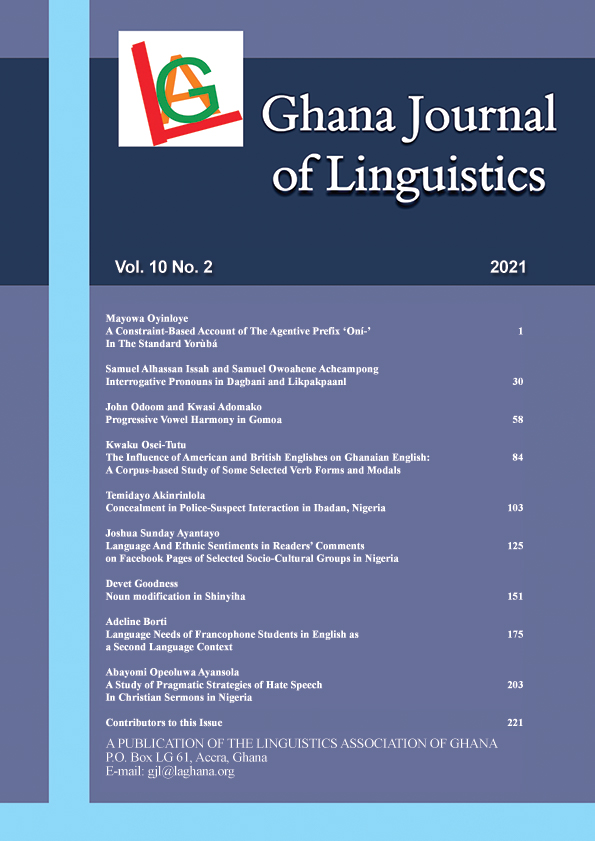Main Article Content
A Study of Pragmatic Acts and Hate Speech Strategies in Christian Sermons in Nigeria
Abstract
Ideology loaded language may be used as instrument of control and for the production of hate speech and may be linked to the intensity of sectarian violence in contemporary Nigeria. This paper, therefore, evaluates the strategies for hate speech production in Christian sermons using Mey’s (1993) proposal on pragmatic acts, a modification of Austin (1962) and Searle (1969) speech act theories. Data, with two sermons from two well-known clerics and obtained from YouTube, has revealed that hate speech were produced through the pragmatic acts of innuendos and name-calling while set-up and co-option methods were deployed for audience participation. Whereas innuendos were linguistically realised as pronouns, name-calling takes the form of adjectives but function as nouns. Set-up and co-option were indirect linguistic strategies meant to empathise and attend to hearers’ face-needs. Pragmatic acts insulate preachers from backlash and highlight Nigeria’s social-political undercurrents. The enactment of hate speech in sermons justifies government initiatives in regulating religious activities.






